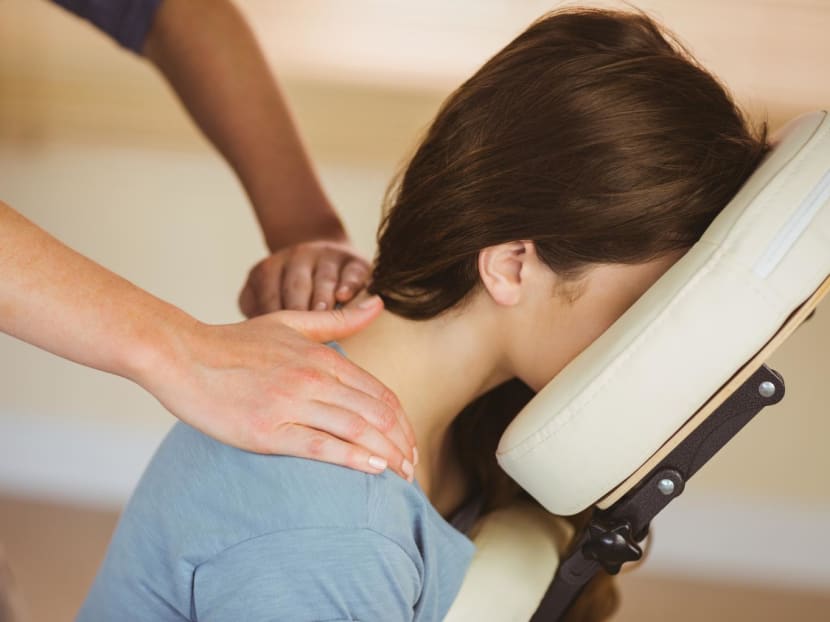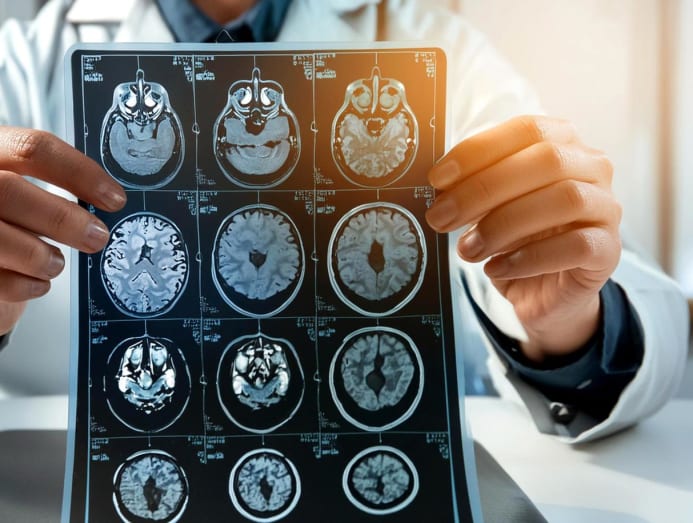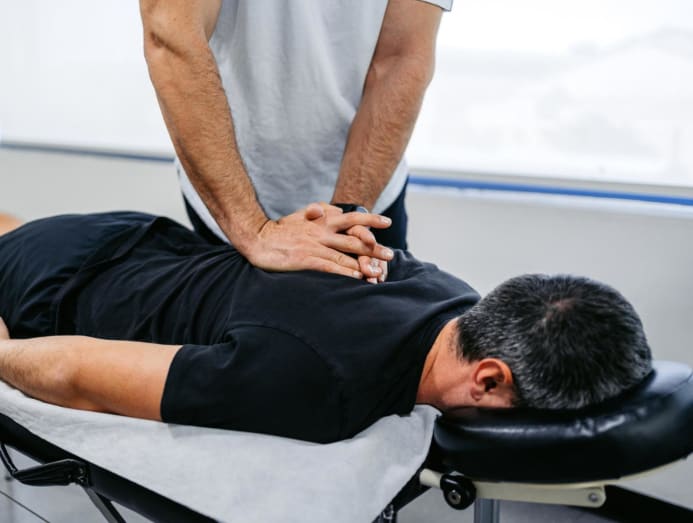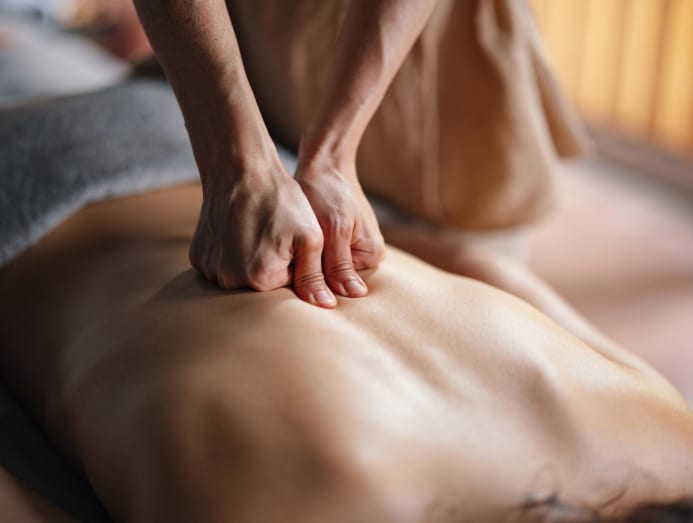Neck cracking and massages: How can we protect ourselves from potential injuries?
A Thai woman's death has been linked to massaging the neck. What does it mean for you if you regularly go for massages? What about your habit of twisting or cracking your neck for relief?

(Photo: iStock/Wavebreakmedia)

This audio is generated by an AI tool.
If you love having massages, you’ll want to read this. A Thai woman reportedly died after receiving massages that also involved neck twisting.
The 20-year-old singer was said to have received three massages in Udon Thani province, the first of which was in October, for her neck and shoulder pain.
According to Bangkok Post, her symptoms did not improve. Two days later, she complained of pain in the back of her neck and took painkillers. But her troubles didn’t stop there. A week later, the singer developed numbness in her arm and went back to the massage parlour for a second session.
When she developed stiffness and was unable to lie face down two weeks later, she returned to the same place for her third massage. She had also felt “tingling, heat and itching in her fingers and numbness in her right leg”, according to Bangkok Post.
The singer was eventually diagnosed with an inflamed spinal cord after several rounds of hospital visits and a period of hospital stay. On her second hospitalisation for stiffness and seizure, she died from blood poisoning. The Thai authorities are determining if the massages are linked in any way to her death.
In the meantime, are neck massages off the table? Should you avoid any form of neck manipulation, even if it’s by a chiropractor? What about the neck cracking you sometimes do to relieve a stiff neck? We find out from the experts.
WHY IS IT POTENTIALLY DANGEROUS TO MANIPULATE THE NECK IN ANY WAY?
That’s because "the neck is the highway between the brain and the rest of the body", said Dr Ang Kian Chuan, an orthopaedic surgeon with OrthoSports Orthopaedic Surgery and Sports Medicine.
"Major nerves and blood vessels traverse that course. Some of the vessels are quite superficial and can be injured by forceful manipulation or massage."
When a masseuse applies too much pressure to the neck, it may cause brachial plexus injury that leads to numbness and paralysis, said senior family physician Dr Nieh Chih Chiang, who also leads a team of physiotherapists at Alpaca Health – similar to the symptoms experienced by the Thai patient.
What happens is that the nerves in the neck are stretched, squeezed together, or in the most serious cases, ripped apart or torn away from the spinal cord, according to Mayo Clinic.

If there’s an underlying atherosclerosis of the arteries in the neck, said Dr Nieh, it could lead to a stroke. Atherosclerosis is the buildup of plaques, which consist mainly of fats and cholesterol, in and on the artery walls. Vigorous massage may dislodge these plaques, causing them to travel to the brain and induce a stroke-causing blockage.
There’s also spinal cord injury to be aware of, which can be caused by cracking or twisting the neck, said Adjunct Assistant Professor Jonathan Tan, a consultant with National University Hospital’s University Spine Centre, Department of Orthopaedic Surgery.
Speaking on Singapore Tonight on Dec 10, he warned that a spinal cord injury can potentially be fatal as it can lead to related complications.
WHAT IF THE CRACKING IS DONE BY A PROFESSIONAL MASSEUSE OR CHIROPRACTOR?
“Certain areas should still be avoided,” said Adj Asst Prof Tan, referring to the neck and back. “In general, most massages and chiropractic treatments are safe,” he said. “Some studies say that the rate of complications is about one in 10,000.”
However, he warned that cracking and massages may not be suitable for patients with underlying medical conditions – such as osteoporosis and other health issues that weaken the bones – who may be more prone to spinal injuries.

“You should also be careful if you’re on long-term medication such as steroids,” he added. “I advise these patients who want to be massaged to speak to their doctors first.”
What about the habit of cracking your own neck or back to ease the stiffness there? A study in the Journal Of The American Medical Association found that pain in the lower back is only momentarily relieved by cracking the back, and wouldn’t add up to any significant improvements.
It’s also not a good idea to be constantly cracking your neck, according to a Healthline article: “Cracking your neck too forcefully can pinch the nerves in your neck. Cracking your neck too hard can also strain the muscles around your joints and the joints themselves. When your muscles or joints become strained, moving your neck can feel like a chore."
The article also cautioned against overdoing the neck cracking as it can over-stretch your ligaments permanently, and increase your chances of developing osteoarthritis.
CAN AGE INCREASE OUR RISK OF INJURIES?
“Age can certainly be an issue because elderly patients tend to have more medical conditions such as osteoporosis or they can have issues with the blood vessels, where the blood vessels are more vulnerable to injury,” said Adj Asst Prof Tan.
ARE CERTAIN TYPES OF MASSAGES SAFER?
“Not to my knowledge,” said Adj Asst Prof Tan.
A good rule of thumb, he said, is to avoid sudden forces to the neck. You’ll also do well to avoid rotational movements that go past your neck’s and back’s natural ranges of movement.

“You should tell your masseuse that you don’t want any sudden or forceful movements,” he said.
Dr Ang advised to "go to someone you trust and be sure to let them know you want very gentle manipulations only". "Manipulations are fine if done correctly."
WHAT ARE THE SIGNS THAT SOMETHING IS WRONG DURING AND AFTER A MASSAGE?
Pain during a session is an immediate red flag, according to Adj Asst Prof Tan. Tell your masseuse or chiropractor to stop if you start to feel pain. “Pain is the body’s way of telling you that you’re pushing it a bit too far,” he said.
Muscle weakness is another symptom of something wrong, added Dr Ang.
It is also not a good sign if, after a massage, you feel “neurological symptoms such as numbness, weakness or tingling in your hands or legs”, said Adj Asst Prof Tan. Other signs can include nausea, a blurring or change of vision.
“These are signs that you might have some kind of neurological injury. You should go to the emergency department to see a doctor,” said he said.
IS THERE A LIMIT TO THE NUMBER OF MASSAGE SESSIONS WE CAN HAVE?
“I think there isn’t a fixed number of sessions to go for,” said Adj Asst Prof Tan.
“To my knowledge, massage therapy works best when the patient goes for several sessions. For chronic neck pain and acute back pain, most studies suggest that several sessions of manipulation are enough.”

WHAT ARE THE COMPLICATIONS THAT MASSAGES CAN POTENTIALLY CAUSE?
Adj Asst Prof Tan has treated “one or two cases where the patients’ spines are fused together or sustained spinal fractures after undergoing massage”. “They had to undergo surgery to stabilise their spines.”
He added that there have been reports in Singapore of patients who had dislocations or fractures of the neck after massage.
Dr Ang, on the other hand, hasn't seen many massage-related injuries fortunately. "But it does happen. Most times, it’s just a muscle strain which responds to medication and rest."
"The risk is low but you don’t want to be the one," he said.
WHAT ARE THE TREATMENTS FOR MASSAGE-RELATED INJURIES?
It depends on the severity of the injury.
“It could be as simple as wearing a brace for a period of time. If there’s a fracture, it could involve going for surgery to stabilise the spine. There are also procedures for injured blood vessels," , said Adj Asst Prof Tan.






